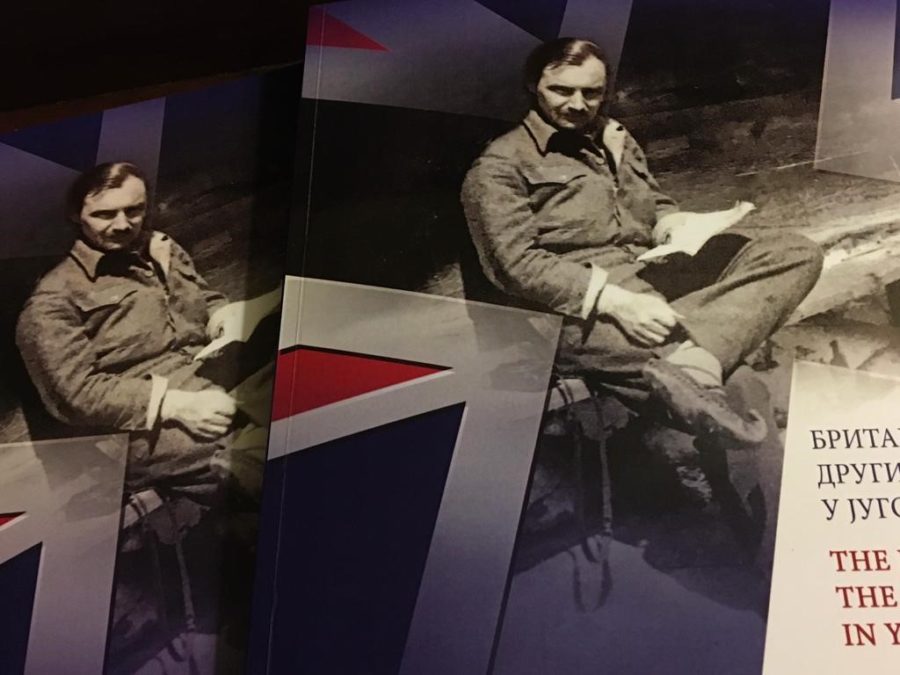
The British and the Second World War in Yugoslavia
The Second World War finally came to an end just over 75 years ago. The memory of that war becomes more distant with each passing generation.
This was the lived experience of my parents’ generation, experience and memories that our parents – or perhaps for some of you your grandparents – recounted to us as children, but which we can only now pass on second or third hand to our own children.
Some of the most remarkable wartime memories and stories told by the British wartime generation concern the cooperation and events which happened in what was then Yugoslavia. They are memories and stories of a remarkable history of struggle, bravery, resilience, ingenuity and sacrifice by our forebears to overcome a common adversary.
The Commonwealth War Graves Cemetery, here in Belgrade, is a constant reminder of the sacrifice made by those who did not return home from Two World Wars to share their stories.
Every day when I as British Ambassador walk into our Embassy on Ulica Resavska I step into a space that has its own smaller place in that history.
With every new posting a diplomat has a lot to learn, including about the history of their new host country and the history of relations between their home and host nations. However much you think you know, there is always much more that you do not.
I learnt about the first of my diplomatic predecessors arriving in Belgrade in 1837 on an Austrian gunboat flying a British royal standard. I learnt about the Salonika Front and the Scottish Women’s Hospitals during the First World War. I read a lot about the complicated history of the Second World War in this corner of Europe.
In past weeks we saw the opening of a photographic exhibition in the Ministry of Defence in Belgrade reminding us of those extraordinary times.
It was only when my Defence Attache Colonel Nick Ilic was helping to prepare the exhibition, which is about British forces in Yugoslavia during the Second World War, that I learnt that Britain provided more support to Yugoslavia than to any other European resistance during the Second World War.
It is a remarkable story, both fascinating and moving, which is brought to life by the photographs.
A Serbian television feature on the exhibition created so much interest that the photographs will now visit cities across the country. In a sign of these online, coronavirus times, the exhibition can also be visited virtually and has its own website.
Inspired by the exhibition myself, I started reading more about the experiences of the many British diplomats that served before me in Belgrade. One of the accounts I found described how British diplomats, re-located to the city of Niš during the First World War, every day disinfected their temporary mission building to keep the typhus epidemic at bay. Just as our wonderful cleaners do their work painstakingly every day in the Embassy now to keep us safe in the midst of the COVID19 pandemic.
(Incidentally, if anyone hearing or reading this knows where that temporary legation in Niš was I’d love to know – sadly I had to cancel my first planned trip to Niš in March but hope to visit soon.)
This week I laid poppy wreaths on memorials to British and other foreign medical staff who gave their lives caring for others in Serbia during the Balkan wars of the early 20th century and the First World War, many victims of the typhus epidemic.
Over past months, the patterns and certainties of our daily lives have been disrupted by the coronavirus pandemic. My home and host countries have tried to help each other in whatever ways we can. My Embassy has for example given practical support to people in need through the Serbian Red Cross, including in some of those same cities where British doctors and nurses worked in the early 20th century.
This weekend I will join my American colleague commemorating the evacuation of hundreds of Allied airmen and other military personnel from occupied territory over several months in 1944. I will lay another poppy wreath, this time on a mountain plateau, south of Belgrade, where a makeshift runway, built under British military supervision by local resistance fighters and villagers, was extended by US forces for the Operation HALYARD evacuation.
Every diplomat’s calendar is punctuated by such solemn moments when we commemorate the events of the past. Even for the most experienced diplomat they can be profoundly moving.
We understand that should remember and learn from the past. But we also understand that we cannot live in the past.
And, as we look through these windows on history, we learn that with distance also comes perspective, and that by healing wounds and reconciling division we are better able to meet the new challenges that face each new generation.













